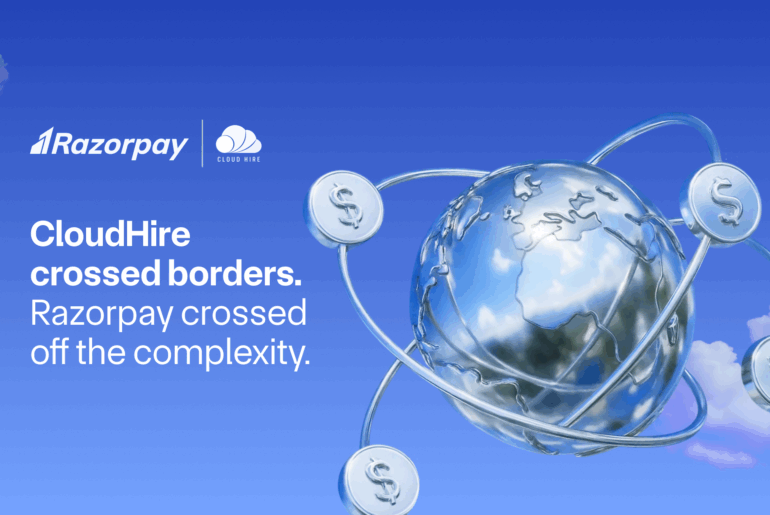Starting an online business has never been as lucrative as it is today. The number of startups in the digital space have grown by leaps and bounds over the past couple of years. Some might say it’s a fad, but we believe in the entrepreneurial spirit of India. It’s a great time to start an online business, especially since India is embracing digital payments more and more.
Startup entrepreneurs usually focus on various business aspects like building an attractive and functional website, ensuring the supply chain is reliable, and more. But apart from these, online businesses should also focus on the best way to collect payments.
Online digital payments can be accepted by businesses through multiple ways, each with its own set of advantages and challenges. The key channels are:
1) Integrating with a bank’s payment gateway
A payment gateway provided directly from a bank (also called a second party payment gateway) allows online businesses to process payments via debit cards, credit cards and net banking and is supported through platforms such as Visa, Mastercard and American Express, among others.
From the cost standpoint, businesses will need to pay an initial setup fee and transaction fees or TDR (Transaction Discount Rate), which is a percentage of the transaction value for all transactions processed via the gateway.
While the whole system looks straightforward in principle, integrating with a bank’s payment gateway is often challenging and tedious for startups.
2. Integrating with a third-party payment gateway
An easy and efficient way to process online payments is through a third-party payment gateway. Such payment gateways also collect TDR on transactions while setup costs may or may not be applicable, depending on the solution provider.
Similar to banks, these gateways also facilitate payments made through debit cards, credit cards and netbanking. In addition to this, many solution providers, like Razorpay, also allow merchants to process digital payments through multiple channels like prepaid digital wallets and recently, even UPI and several digital wallets. This way, online businesses have the agility to accept payments through practically every online digital mode.
While on the face of it, third-party payment gateways seem similar to bank payment gateways, they are in fact far more user friendly, accessible and easy to integrate, especially for first time startups.
Related Read: What is a Unicorn Startup and How to be One?
Now that we know the basics of the two channels, let us see how one compares with the other:
Difference between Second party vs third party payment gateway
| Second Party PG | Third-party PG | |
|---|---|---|
| Setup costs One time cost to integrate website with the PG |
High setup costs | Low/No setup costs |
| Application process Includes documentation and approval time for PG access |
Lengthy process. Average application and approval cycle is around 3 months | Quick approval and online onboarding process. Average time for onboarding is 5-10 days |
| Documentation Mode of document submission |
Documentation needs to be submitted in hardcopy, making the process cumbersome | Paperless submission of documents making the whole process easy and efficient |
| Technical integration Ease of integration and mode of integration |
Difficult to integrate;requires significant time and effort from the merchant’s tech team | Easy and simple integration with minimum coding efforts. Some gateways allow for integration within a few hours |
| UX User experience and user interface |
Complicated UX with limited or no scope for merchant customization. | User friendly and intuitive UX that also allows for merchant related customisation |
| Issuance of refunds Handling of customer refunds |
A manual refund and verification process is to be followed to issue refunds to customers | Merchants can easily refund transactions directly from the dashboard through a click of a button |
| Card saving Cards once used by customers are saved automatically for future use |
Does not facilitate card saving, hence not optimised for superior customer experience | Allows for card saving feature across multiple cards, thus enhancing customer experience that might lead to increased customer loyalty |
| Risk Engines System level risk identifiers that aim at curbing fraudulent/risky transactions |
Does not provide inbuilt risk engines that reduce the occurrence of online frauds | Provides system level risk engines that mitigate the chances of online frauds |
| Co-branding, The opportunity to use brand name and brand design for the payment checkout process |
Does not allow for any co-branding/brand placement or customization in the payment, checkout process | Allows for various levels of customization and brand placement in the payment, checkout process |
| PCI DSS certification Official information security standards required for handling online card transactions |
Requires merchants to be certified to PCI DSS in order to access the payment gateway | Merchants can easily access the payment gateway without individually applying for PCI DSS certification (as the PG acquires the risk involved in the payment process) |
Thus, from this comparative analysis, startups looking to accept digital payments should integrate with third-party payment gateway providers given the significant advantages gained at minimum effort.
Accepting payments beyond a payment gateway
Setting up a payment gateway works for online businesses that have a website or an app. But what if you don’t? Does that mean you won’t be able to accept digital payments? Nothing could be farther from the truth.
The Razorpay payment suite offers solutions for businesses to accept payments even without a website or an app. Here’s how.
Get paid instantly with Payment Links
If you don’t have a website or an app, you can easily create a Payment Link from your Razorpay Dashboard and send it to your customers via email, SMS, messengers, chatbot, etc.
Even with a Payment Link, your customer can choose from a plethora of options to complete the payment. Razorpay Payment Links can be used by businesses without a website, as well as businesses with a website that require an alternate payment method. It is a smart way to collect payment, which comes with features like bulk upload and partial payments.
Collect payments with custom Payment Pages
Razorpay Payment Pages allow you to create a custom-branded payment page to build an online store in minutes. You don’t need coding expertise to get your store online in a matter of minutes.
With Payment Pages, you can list multiple products, apply smart purchase controls, meet your branding requirements and track your payments with ease. Payment Pages are used by businesses to sell event tickets and products as well as to collect donations and fees.
Complete payment solution for freelancers
You don’t even have to be a registered business to accept payments with Razorpay. We support Individual businesses payments, freelancers, consultants and professionals as well.
With quick onboarding and support for multiple payment modes, freelancers never had it as easy as this to accept payments online. Our support for freelancers and Individual businesses also enables them to create GST-compliant invoices to get paid instantly.
Processing payments is one of the most integral aspects for online businesses today. It is the critical and final step that ensures the success of a product or service. Thus, in addition to merchant-level benefits, payment solutions should also be end-customer friendly and provide checkout experiences that are intuitive, efficient and secure.
At Razorpay, we provide the entire checkout experience on the merchant page with no external redirects, thus providing not only a quick, cohesive payment experience, but also very low dropoff rates.
In today’s crowded online ecosystem, startups require solutions that are many solutions wrapped into one tight and efficient one. Third-party payment gateways like Razorpay do exactly that.
Further reading: How to Choose the Right Payments Solution


